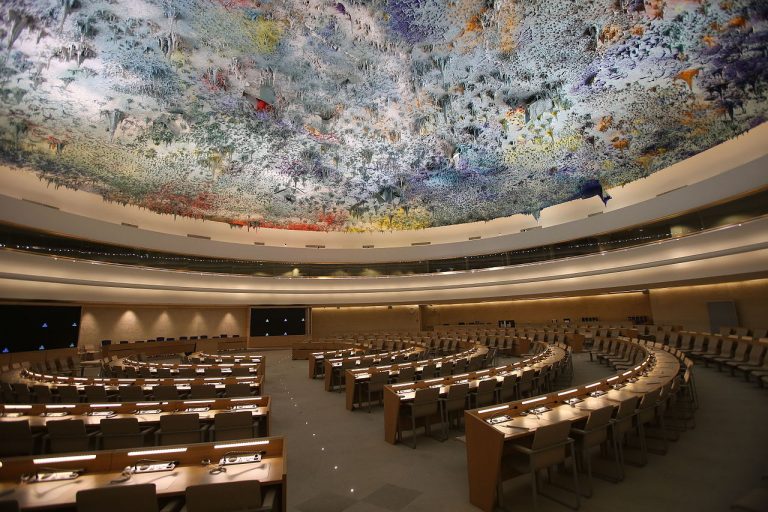
Amnesty International, Article 19, the Society for Threatened Peoples and European Language Equality Network are some of the NGOs that have raised the alarm concerning the lack of respect for human rights in Spain
This morning the follow-up session of the United Nations Universal Periodic Review of Spain took place within the framework of the 44th Session of the United Nations Human Rights Council. Last January, 22 UN member states specifically expressed their concerns on the deterioration of civil and political rights in the country since 2015, especially concerning Catalonia’s self-determination movement.
In January, questions and recommendations regarding police violence, the infamous Citizen Security Protection Law (also known as the Gag Law), as well as arbitrary detention and torture, were raised by member states. During today’s follow up session, despite the Spanish Delegate announcing the acceptance of a number of recommendations, civil society organisations raised the alarm concerning the state of human rights in the country, and the need for immediate action.
Amnesty International, Article 19, the Society for Threatened Peoples, the European Language Equality Network (ELEN), Americans for Democracy & Human Rights in Bahrain, the Human Rights Institute of Catalonia, and the Iraqi Development Organization expressed their concerns on this matter, as did an ample majority of the civil society organizations that spoke at the session.
Almost every NGO coincided with the urgent need to reform the Law of Citizen Protection, commonly known as the Gag Law, due to its repressive effect on the rights of freedom of speech and freedom of assembly. Amnesty International and ELEN specifically mentioned the crime of sedition and Spain’s use of the law to imprison Catalonia’s civic and political leaders.
In the same line, ELEN stated that “Spain has to comply with the UN Working Group on Arbitrary Detention’s opinion to release Catalonia’s political prisoners”, an argument reiterated by Amnesty International and the Society For Threatened Peoples. Moreover, Article 19 denounced the prison sentence against rapper Pablo Hasel applying this legislation and called for the [criminal] offences against honour and religion to be decriminalized.
The Society for Threatened Peoples, Americans for Democracy & Human Rights in Bahrain and the Iraqi Development Organization made remarks on the excessive police violence seen during Catalonia’s October 2017 referendum on independence, as well as the protests of October 2019 against the disproportionate prison sentences for Catalan civic and political leaders.
They called for investigations to be carried out either by the state or by independent agents, and for the Spanish delegation to present details of those responsible and the respective penalties. Finally, Amnesty International called on Spain to ban the use of rubber bullets, and the need to offer reparations for the victims of the Francoist repression.
Experts discuss the degradation of human rights in Spain
In the context of the 44th UN Human Rights Council session, the Catalan National Assembly, the Society for Threatened Peoples, and the Unrepresented Nations and Peoples Organization (UNPO) organized on July 15th an International Digital Roundtable on the deterioration of civil and political rights in Spain, concerning the Catalan minority and its pro-independence movement.
The panel was formed by Irish MEP Clare Daly (GUE-NGL), lawyer and Secretary General of UNPO, Ralph Bunche, and Neus Torbisco, a professor of human rights at the Graduate Institute of International and Development Studies of Geneva. The event was moderated by Adrià Alsina, a teaching fellow in Global Communication at the Central University of Catalonia (UVIC) and a General Board member of the Assembly.
The event can be watched here.